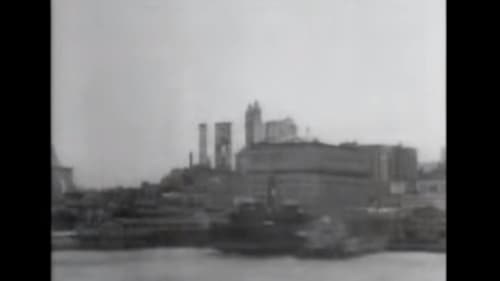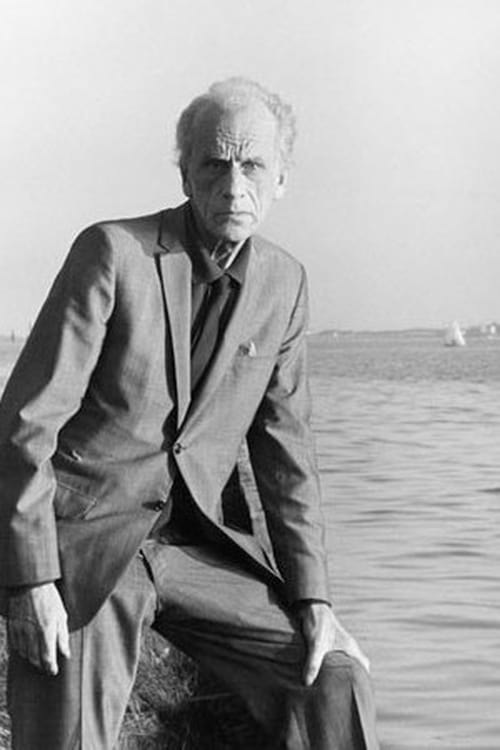The Children's Jury (1938)
장르 :
상영시간 : 9분
연출 : Joseph Cornell
시놉시스
A montage of elephants, children, Native Americans, logging, a barnstormer, a blimp, people on and in the water, and a man who sings like a bird.

Photographer Rudy Burckhardt shows us the ebb and flow of people rushing about Manhattan. Equally exhilarating in his novel approach to snap images quickly on the run, a method he inaugurated and that continues to the present day. In film, he added slow and fast motion, split-screens and superimpositions to his repertory.

Christopher Young experiments with objects and their uses.

Cale makes a short film called Police Car. No sound, and it is in black & white. Part #31 in the Fluxus Film series.

Synchromy No. 2, synchronized to the "Evening Star" aria from Wagner's Tannhäuser, uses a statue of Venus to represent the star.

Carousel - Animal Opera (c.1938), a visual symphony by artist and sculptor Joseph Cornell.

To the toccata portion of Bach's "Toccata and fugue in D minor," we watch a play of sorts. Blue smoke forms a background; a grid of black lines is the foreground. Behind the lines, a triangle appears, then patterns of multiple triangles. Their movements reflect the music's rhythm. Behind the barrier of the black lines, the triangle moves, jumps, and takes on multiple shapes. In contrast with the blue and the black, the triangles are warm: orange, red, yellow. The black lines bend, swirl into a vortex, then disappear. The triangle pulsates and a set of many of them rises.

A montage of some home movies taken by Archie Stewart (1902-1998), an early enthusiast in taken 16 mm sound films of his family. We see his daughters, Mary and Anne, playing in the aftermath of a January, 1936, snowstorm. Next, indoors, the girls bring in a birthday cake and sing to Archie. He has Anne read to him from a children's book, and a year later, has her read aloud to show her progress. Anne and Mary dress up Pat the family dog in a dress and scarf and hold a tea party, chattering away. Archie's high-pitched voice provides narration on and off camera.

A runaway barrel wreaks havoc all over the city.

Breath governs life and is also the sign of changes in emotion.

Single frame exposures of words.

In a European seaside village, a maiden takes clean sheets down from the clothesline. Carrying her basket of linens home, she stops to consult a fortune teller. The cartomancienne sees love in the cards. The young woman pauses to reflect. We then see water, swirling, and into view swims a man, as if just appearing on earth. He arrives on shore - is he just in her mind's eye, or is he real? She weaves a garland for her hair. Will they meet?

This sequel to Themis similarly simulates the movement of abstract colours and shapes to form distinct visual patterns.

One of the first color films in Europe, made with the Gaspar Color process.

One of Joseph Cornell’s funniest films, Thimble Theater is structured like a vaudeville variety show about nature.

A pretty maid is out walking and encounters a series of military men, starting with a private, who lose her to higher ranks.

Nymphs and cupids dance in celebration of the arrival of Spring.

A beautiful panoramic view of lower New York from Barclay Street to Battery Park, showing a beautiful stereoscopic effect of the sky-scrapers in the business section of the city.

Parabola is a celebration of film’s ability to create new ways of seeing the forms around us. Creating juxtapositions between light/shadow, stasis/motion, and form/music, this black-and-white short invites us to see the parabolic curve, or “nature’s poetry,” as both invigorating and beguiling.

This short film consists of a crazy old colonel being asked to entertain party guests about his exploits of daring. However, being a totally insane old coot, he runs amok acting out his war-time heroics--smashing and throwing everything in the room!

Starting in the late 1930s, illustrator and experimental animator Douglass Crockwell created a series of short abstract animated films at his home in Glen Falls, New York. The films offered Crockwell a chance to experiment with various unorthodox animation techniques such as adding and removing non-drying paint on glass frame-by-frame, squeezing paint between two sheets of glass, and finger painting. The individual films created over a nine-year period were then stitched together for presentation, forming a nonsensical relationship that only highlights the abstract qualities of the images. —Kansas City Electronic Music and Arts Alliance




